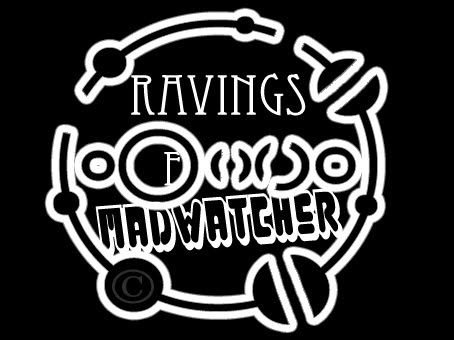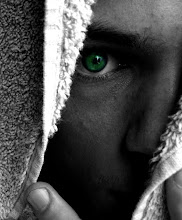__________________________________
A study of ethics on the living as well as the dead.
Ghosts sightings and haunting - whether you believe in them or not - are usually followed by a ghost hunters, investigating the claims of paranormal activity. This is all well and good; we as human beings are naturally curious about what happens to us after death. And depending on which religion you follow (if any) those answers are already somewhat available (depending on the depth of your faith).
However, as technology has advanced, more and more accurate and sufficient ways to try and contact the deceased and investigate paranormal activity has evolved also. We have gone from the simple Ouija boards to the more modern infrared/night vision cameras and EMF detectors. Suffice it to say, the parapsychology field is near becoming a successful science thanks to the strides in technology.
Troublingly though, parapsychology still shares its profession with that of spiritualism, clairvoyance and mediumship. No matter what your belief system on these matters, these are not solid scientific methods.
Parapsychology right now is still holding onto the shoulder of the aforementioned for guidance and whilst most of the experiences when working with clairvoyants or psychics in the field are interesting, a lot of them are still genuinely unexplainable, and yet they are still being documented as events happening upon an investigation; whether it be a psychic having an odd feeling in a room or a clairvoyant (apparently) hearing the voice of a deceased person in their head.
So does this destroy the credibility of Parapsychology as an actual science? I couldn’t possibly say, but I am of the opinion that it isn’t actually doing it any favours. A clairvoyant experience (in most documented cases) is based on the experience of the clairvoyant and is not solid, reliable evidence that a parapsychologist can investigate.
Also consider that the most haunted and historic locations around the world now have their own website/databases with quick information stored and ready to be shared at the click of a button: shouldn’t that be enough to call into question the alliance between parapsychology and spiritualism?
I am not saying that I do not believe in clairvoyance/mediumship/spiritualism etc – I am a very open-minded sceptic – But all those things are based on faith and how much faith you retain on that subject; parapsychology should be based purely on scientific study. Faith should not factor in science – even if the investigation is based on an issue of faith.
Consider the ethics of the current state of Ghost hunting TV shows such as Most Haunted, Ghost Adventures, and Ghost Hunters etc. Whilst Parapsychology plays a major role in the investigation of paranormal activity, so does Clairvoyance and Mediumship. For example; The Most haunted team do not investigate a location without the aid of a psychic medium to walk the through the “ghosts” they are meeting.
Each investigation is conducted in complete darkness with random members of the team “calling out” to the spirits of that specific location in order to receive a paranormal response. Ghost adventures uses this same technique but sometimes to the extreme by taunting and provoking “ghosts or spirits” in the hopes that their reaction will be more emotional and therefore show more energy that can be documented as genuinely unexplainable at that time.
Flip the entire dynamics of Ghost Hunting on its head:
Imagine you are a ghost. You have been dead for a good 30 years. A film crew searching for evidence of the afterlife comes along and proclaims “I’m here to help you!” And then adds “As long as you help me!”
Imagine that after a while, with your inability to communicate with them, they become agitated and start taunting you to try and provoke a reaction that you possibly cannot give.
Imagine, in your anger/sadness of the entire situation, a “Clairvoyant/medium/psychic” (etc) comes along and – having done their research on you beforehand – starts to tell these people personal information about you. Then, as the film crew leave, having gathered enough evidence to broadcast for an episode, almost as a final insult, the “Clairvoyant/medium/psychic” proclaims “I have mentally said a prayer for him/her... they’ve gone to the other side now.”
How insulting! Not only to your intelligence but to you as a person.
If ghosts/spirits do actually exist, how can you be sure that they were in their living years actually religious? And what if the very act of clairvoyance/mediumship is nothing more than the imagination? You’ve been abandoned by people who promised to help you in some way, only for them to leave and for the next team of ghost hunters to move in. In terms of respect, why not just go to Africa and eat a roast dinner out in the open in front of the poorest people in town? The lasting emotional effect would be the same would it not?
Am I saying all ghost investigation teams have a lack of respect for the dead? To an extent, yes I am. The very act of seeking these ghost/people out does usually warrant a bit of digging for information about them. Does being dead give people the right to violate your right to privacy? And if so, how many minutes/hours/days/weeks/years/decades/centuries (etc) do you need to be dead before your personal information becomes free game to any passing Ghost Hunter? Surely Ghost hunting is best done directly after the person has passed away? I wonder what reason is given for that not to happen (/sarcasm).
That being said, I am of the opinion that there are fundamental wrongs still happening in the worlds of ghost hunting and parapsychology:
Parapsychologists reliability on clairvoyance/mediumship and the respect (or lack thereof) given to the dead/ghosts of the places they all investigate.
What do you guys think?
However, as technology has advanced, more and more accurate and sufficient ways to try and contact the deceased and investigate paranormal activity has evolved also. We have gone from the simple Ouija boards to the more modern infrared/night vision cameras and EMF detectors. Suffice it to say, the parapsychology field is near becoming a successful science thanks to the strides in technology.
Troublingly though, parapsychology still shares its profession with that of spiritualism, clairvoyance and mediumship. No matter what your belief system on these matters, these are not solid scientific methods.
Parapsychology right now is still holding onto the shoulder of the aforementioned for guidance and whilst most of the experiences when working with clairvoyants or psychics in the field are interesting, a lot of them are still genuinely unexplainable, and yet they are still being documented as events happening upon an investigation; whether it be a psychic having an odd feeling in a room or a clairvoyant (apparently) hearing the voice of a deceased person in their head.
So does this destroy the credibility of Parapsychology as an actual science? I couldn’t possibly say, but I am of the opinion that it isn’t actually doing it any favours. A clairvoyant experience (in most documented cases) is based on the experience of the clairvoyant and is not solid, reliable evidence that a parapsychologist can investigate.
Also consider that the most haunted and historic locations around the world now have their own website/databases with quick information stored and ready to be shared at the click of a button: shouldn’t that be enough to call into question the alliance between parapsychology and spiritualism?
I am not saying that I do not believe in clairvoyance/mediumship/spiritualism etc – I am a very open-minded sceptic – But all those things are based on faith and how much faith you retain on that subject; parapsychology should be based purely on scientific study. Faith should not factor in science – even if the investigation is based on an issue of faith.
Consider the ethics of the current state of Ghost hunting TV shows such as Most Haunted, Ghost Adventures, and Ghost Hunters etc. Whilst Parapsychology plays a major role in the investigation of paranormal activity, so does Clairvoyance and Mediumship. For example; The Most haunted team do not investigate a location without the aid of a psychic medium to walk the through the “ghosts” they are meeting.
Each investigation is conducted in complete darkness with random members of the team “calling out” to the spirits of that specific location in order to receive a paranormal response. Ghost adventures uses this same technique but sometimes to the extreme by taunting and provoking “ghosts or spirits” in the hopes that their reaction will be more emotional and therefore show more energy that can be documented as genuinely unexplainable at that time.
Flip the entire dynamics of Ghost Hunting on its head:
Imagine you are a ghost. You have been dead for a good 30 years. A film crew searching for evidence of the afterlife comes along and proclaims “I’m here to help you!” And then adds “As long as you help me!”
Imagine that after a while, with your inability to communicate with them, they become agitated and start taunting you to try and provoke a reaction that you possibly cannot give.
Imagine, in your anger/sadness of the entire situation, a “Clairvoyant/medium/psychic” (etc) comes along and – having done their research on you beforehand – starts to tell these people personal information about you. Then, as the film crew leave, having gathered enough evidence to broadcast for an episode, almost as a final insult, the “Clairvoyant/medium/psychic” proclaims “I have mentally said a prayer for him/her... they’ve gone to the other side now.”
How insulting! Not only to your intelligence but to you as a person.
If ghosts/spirits do actually exist, how can you be sure that they were in their living years actually religious? And what if the very act of clairvoyance/mediumship is nothing more than the imagination? You’ve been abandoned by people who promised to help you in some way, only for them to leave and for the next team of ghost hunters to move in. In terms of respect, why not just go to Africa and eat a roast dinner out in the open in front of the poorest people in town? The lasting emotional effect would be the same would it not?
Am I saying all ghost investigation teams have a lack of respect for the dead? To an extent, yes I am. The very act of seeking these ghost/people out does usually warrant a bit of digging for information about them. Does being dead give people the right to violate your right to privacy? And if so, how many minutes/hours/days/weeks/years/decades/centuries (etc) do you need to be dead before your personal information becomes free game to any passing Ghost Hunter? Surely Ghost hunting is best done directly after the person has passed away? I wonder what reason is given for that not to happen (/sarcasm).
That being said, I am of the opinion that there are fundamental wrongs still happening in the worlds of ghost hunting and parapsychology:
Parapsychologists reliability on clairvoyance/mediumship and the respect (or lack thereof) given to the dead/ghosts of the places they all investigate.
What do you guys think?


No comments:
Post a Comment